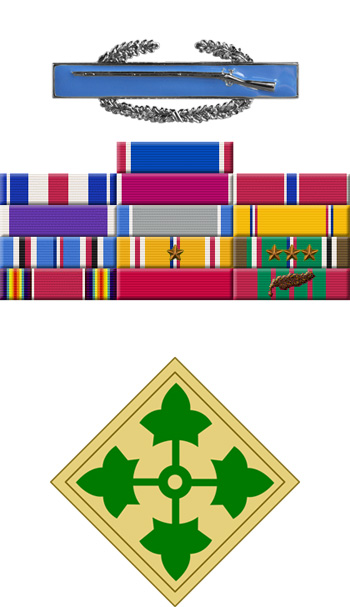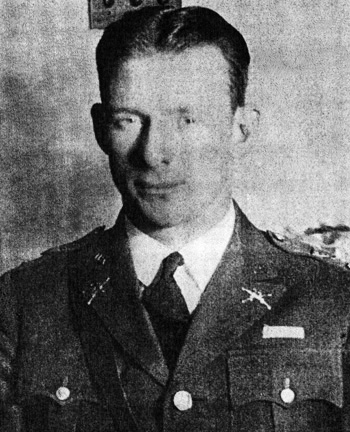
|
Russell P. Reeder, Jr. |
 |
|||
| Rank, Service | ||||
Colonel O-6, U.S. Army |
||||
| Veteran of: | ||||
|
||||
| Tribute: | ||||
Red Reeder was born on March 4, 1902, at Fort Leavenworth, Kansas. He entered the U.S. Military Academy at West Point on July 1, 1920, and was commissioned a 2d Lt of Infantry on June 12, 1926. His first assignment was with the 34th Infantry Regiment at Fort Eustis, Virginia, and later attended the Company Commander Course at The Infantry School at Fort Benning, Georgia, from September 1932 to June 1933. Lt Reeder served at Fort Clayton in the Panama Canal Zone from 1934 to 1936, and again from January 1940 to July 1941. Col Reeder served as a battalion commander and then Executive Officer of the 32nd Infantry Regiment of the 7th Infantry Division at Fort Ord, California, from August 1941 to July 1942, and then served on the War Department General Staff in Washington, D.C., from July 1942 to March 1944, serving in the Pacific Theater from October to December 1942. His next assignment was as Commander of the 12th Infantry Regiment of the 4th Infantry Division in England from April to June 1944, and then during the invasion of Europe from June 1944 until he was badly injured in combat and was returned to the U.S. in July 1944. Col Reeder was a patient at Walter Reed from June 1944 to September 1945, and then served as Commander of the 2nd Regiment of the Corps of Cadets at the U.S. Military Academy from October 1945 to October 1947. He then served as Assistant Director of Athletics at West Point from October 1947 until his retirement from the Army on August 1, 1948, and then as a civilian until retiring in 1967. The Association of Graduates of the U.S. Military Academy presented the Distinguished Graduate Award to Red Reeder in 1997. He died on February 22, 1998. |
||||
|
||||

